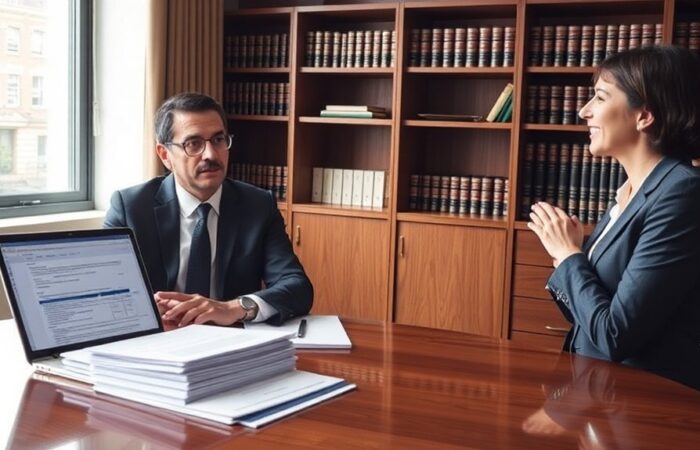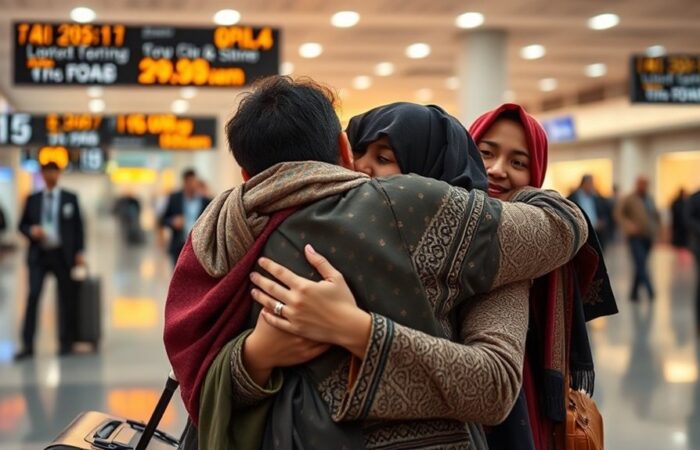If you’re navigating Brazil’s bureaucracy as an Afghan, you know how confusing name changes and spelling differences can be. Simple issues, like transliteration errors or outdated aliases, might cause delays or even legal trouble. That’s where Vieira Braga Advogados steps in, offering clarity and expertise tailored to your situation. Wondering how your unique naming history can fit Brazil’s strict requirements? There’s a key solution you haven’t considered yet…
Challenges Faced by Afghans in Brazilian Bureaucracy
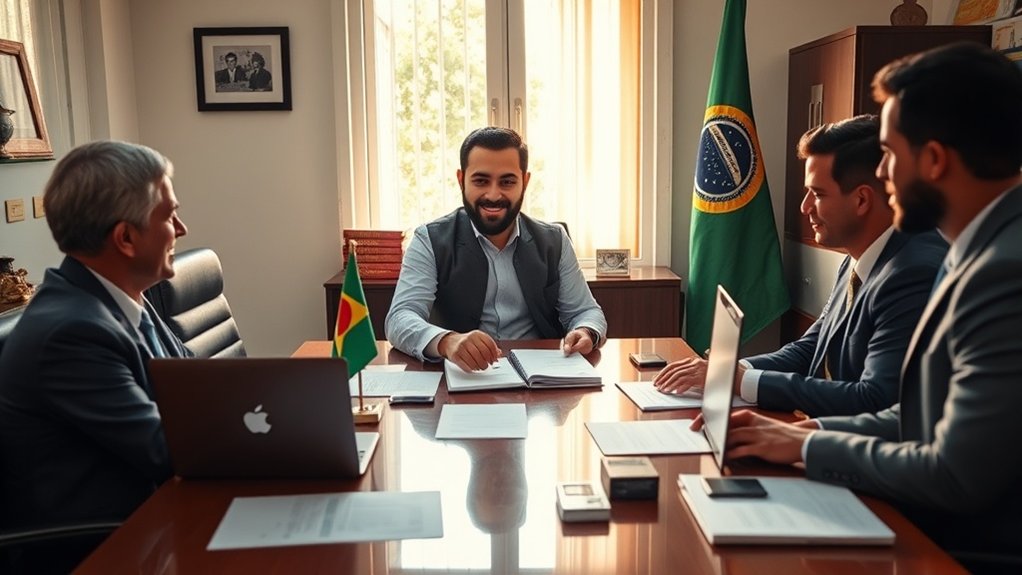
Although Brazil offers refuge and hope to many Afghans, adjusting to the country’s bureaucracy presents tough obstacles. When you arrive, you’ll notice that every official process—like registering for residency, healthcare, or employment—requires paperwork, appointments, and patience. Usually, you’re expected to provide documents that might have been lost or destroyed during your journey. Even if you have what’s needed, you’ll still face challenges understanding Portuguese legal terms and navigating unfamiliar government offices.
Brazil’s systems expect perfect documentation, and rarely do they account for the complexities of fleeing your home country. You’ll likely encounter forms, interviews, and requirements that don’t match your reality. If you need to update or fix your personal information, delays are common, leaving you stuck without essential services for weeks or months. All these obstacles make it hard to settle in, find work, and establish a normal life while you adapt to a new society. For this reason, seeking professional guidance from experienced immigration lawyers can greatly increase your chances of overcoming bureaucratic challenges and securing your residency in Brazil.
Common Issues With Name Spelling and Transliteration
When you try to register your Afghan name in Brazil, you’ll quickly notice inconsistencies in how officials spell or transliterate it. Brazilian authorities aren’t always familiar with Dari or Pashto phonetics, which can lead to a range of issues. You might see your name spelled differently across documents, making it hard to verify your identity. Errors happen because Afghan names often contain sounds or characters absent in Portuguese, and officials may guess or use personal preferences.
Here are four frequent issues you might face:
- Multiple accepted spellings for the same name (e.g., “Mohammad” vs. “Muhammad”).
- Misinterpretation of patronymic and family name order, causing reversed or combined names.
- Omission or inconsistent use of diacritical marks, affecting pronunciation and meaning.
- Literal transliteration without adapting for Brazilian spelling conventions, producing unfamiliar results.
Seeking advice from a specialized immigration lawyer can help you overcome these documentation challenges and avoid risks of application denial due to inconsistencies in your official records.
The Impact of Alias Discrepancies on Legal Processes
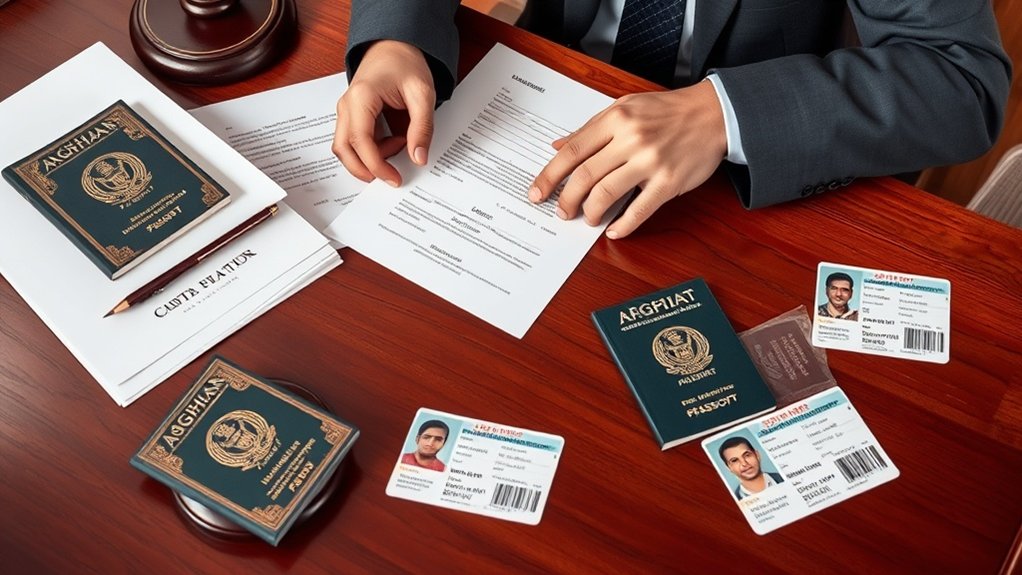
When your documents show different aliases, you’re likely to face frustrating delays in getting them processed. These discrepancies also make it much harder for authorities to confirm your identity. Let’s look at how these issues can complicate your legal affairs. Seeking help from professionals with expertise in immigration law can minimize errors and improve your chances of resolving such name or alias discrepancies efficiently.
Delays in Document Processing
Given the complexity of legal documentation, alias discrepancies can cause significant delays in processing important papers. When your documents reflect different versions of your name or aliases, authorities often require extra verification steps, slowing everything down. These delays don’t just affect you—they can impact families, employers, and even government agencies relying on prompt action. Here’s how alias discrepancies disrupt the document process:
- Application reviews get stalled while officials investigate inconsistencies.
- Additional paperwork, such as affidavits or certified translations, is frequently requested.
- Scheduling appointments and interviews may take longer as your case requires special handling.
- Corrections or amendments might need to be filed, further delaying final approval.
Resolving alias issues early with professional help can streamline document processing and help you avoid these setbacks. Consulting an immigration lawyer ensures correct completion of USCIS forms and reduces the risk of avoidable delays tied to alias inconsistencies.
Identity Verification Challenges
Although documentation might seem straightforward, even minor differences between your legal name and aliases can create serious obstacles during identity verification. If your Afghan name has been transliterated in various ways or changed officially, you’ll likely encounter problems confirming your identity with administrative, legal, or banking entities. These organizations rely on consistent data to prevent fraud and facilitate secure transactions, so mismatched records—even as minor as spelling variations—may prompt requests for additional documentation or outright denials.
You might find yourself repeatedly explaining discrepancies, submitting extra paperwork, or even facing delays in court cases and immigration processes. Without resolving these alias issues, you run the risk of misunderstandings or, worse, being suspected of misrepresentation. Addressing these problems quickly protects your legal rights and streamlines bureaucratic processes. Working with an expert immigration lawyer ensures your documents are properly prepared and helps prevent application delays caused by identity inconsistencies.
Brazilian Legal Requirements for Name Regularization
If you need to regularize your name in Brazil, you’ll have to gather specific documents and follow set rules for transliteration. Brazil requires official paperwork and strict adherence to how names are spelled using the Portuguese alphabet. Let’s look at what you’ll need and how the transliteration process works. Many people find the process challenging without specialized legal support, as errors in documentation or transliteration can delay or even jeopardize your ability to regularize your name.
Essential Documentation for Name Change
To successfully regularize your name in Brazil, you’ll need to gather a specific set of documents required by local authorities. These papers will form the foundation of your application and help prove your identity, motivation, and current legal status. Brazilian officials are meticulous about documentation, so you must prepare each item carefully to avoid delays or rejections. Make sure every document is current and matches your personal information exactly.
Here’s what you must provide:
- Proof of identity, such as a valid passport and RNE (Registration of Foreign National).
- Birth certificate, with an official translation if it’s not in Portuguese.
- Documented evidence justifying the name change request (e.g., court decisions, government notices).
- Proof of residence in Brazil, like a recent utility bill or rental contract.
Consulting with an expert can help ensure your documents meet the Brazilian immigration law standards and maximize your chance of a successful application.
Transliteration Standards in Brazil
Once you’ve gathered the necessary documents, you’ll face the important step of ensuring your name is correctly represented according to Brazilian law. Brazil requires names from foreign languages, such as Dari or Pashto, to be transliterated based on the official Portuguese alphabet. This means your Afghan name must use phonetic spellings that align with how it would naturally sound in Portuguese, avoiding special characters, accents, or letters not found in the native alphabet. If your documentation contains different versions of your name, you’ll need to clarify these differences with an official affidavit or notarial statement. Consistency across passports, visas, and local ID is crucial. Using Brazil’s transliteration standards ensures your name is legally valid, recognized by authorities, and avoids future bureaucratic issues. Consulting with an immigration lawyer offers legal security at every stage of this process, making sure you comply with both Brazilian and international regulations.
Understanding Afghan Naming Conventions
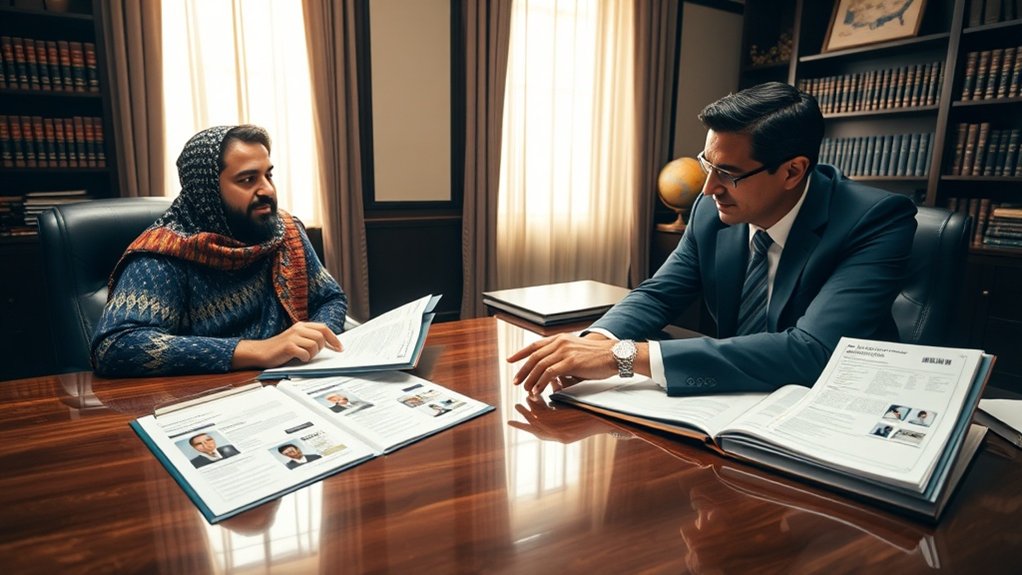
Names in Afghan culture reflect deep family ties, history, and regional traditions. When you look closer, you’ll notice Afghan names work quite differently from Western styles. You won’t find common structures like “first name, middle name, last name” here. Instead, you may encounter unique patterns based on honor, tribes, and ancestral lineage. Understanding these nuances is essential if you need to manage document translation or legal matters.
Here’s what you should know:
- Afghan names might not include a family name—many use just a given name followed by the father’s name.
- Titles or honorifics, like “Khan” or “Jan”, are often part of the name but don’t represent family surnames.
- Regional dialects affect pronunciation and spelling, resulting in multiple accepted transliterations.
- Tribal affiliations or ethnic group identifiers sometimes form part of the name, adding complexity to identification.
Learning these conventions will help you avoid confusion. Having professional assistance from an immigration lawyer can be essential in navigating complex immigration policies related to Afghan name changes and document translation.
Step-by-Step Approach to Resolving Name Conflicts
When facing conflicting Afghan names—whether during document verification or data entry—you’ll need a clear, systematic process to resolve them. Start by gathering all documents where the names appear. Compare spellings, order, and transliterations. Check for variations caused by different alphabets, regional dialects, or translation errors. Context is key, so examine each record—birth certificate, passport, visa, and ID—for consistency.
Next, document every discrepancy. Make a list of all possible versions of the name. Then, prioritize the sources: official government IDs usually carry more weight than secondary records. If you spot alias usage, note the purpose and frequency of each alias across documents.
Share your findings with all involved parties for review. Open communication helps clarify which version aligns best with legal, cultural, and personal considerations. By following this structured approach, you’ll minimize mistakes, reduce confusion, and pave the way for effective name conflict resolution. Consulting specialized legal assistance can also ensure your documentation meets immigration standards and avoids preventable errors.
Necessary Documentation and Evidence for Corrections
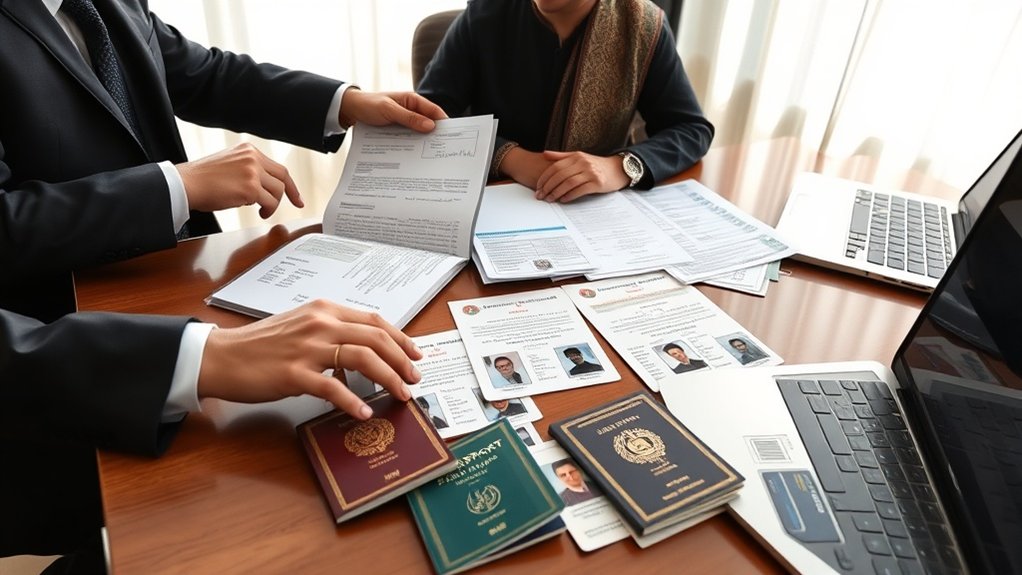
Before correcting an Afghan name on official records, you’ll need to assemble strong documentation that clearly supports your claim. Precision is key—official bodies won’t process your request without credible, well-organized documents. Here’s what you should focus on:
- Primary Identification Documents: Gather your original Afghan passport, national ID (Taskira), or birth certificate. These are your most authoritative records.
- Supporting Evidence: If transliteration variations or aliases are involved, include old school certificates, marriage licenses, or any relevant immigration documents showing your name in different formats.
- Official Translations: When your documents aren’t in the language of the official records you’re correcting, obtain certified translations to avoid misunderstandings.
- Affidavits or Notarized Statements: If there are inconsistencies, sworn statements from community leaders or witnesses can help validate your true identity and explain discrepancies.
Having these items ready streamlines the correction process and increases your chances of success.
How Vieira Braga Advogados Assists Clients
When you work with Vieira Braga Advogados, you get personalized legal consultation tailored to your unique situation. They guide you through an efficient documentation process, making each step clear and manageable. Plus, you’ll benefit from their multilingual support services, ensuring nothing is lost in translation.
Personalized Legal Consultation
Whether you’re facing complex documentation or unsure about the legal process, Vieira Braga Advogados offers personalized legal consultations tailored to your unique situation. You’ll work directly with attorneys who listen to your concerns and clarify the steps needed to resolve Afghan name change, transliteration, or alias issues. During your consultation, the team focuses on your specific needs, enabling a seamless experience. You’ll benefit from clear communication and actionable advice every step of the way.
Here’s how the personalized legal consultation unfolds:
- You describe your situation and objectives in detail.
- The attorney analyzes your case and identifies relevant legal challenges.
- You receive a clear outline of possible strategies.
- Ongoing support and answers to your questions ensure you feel confident moving forward.
Let Vieira Braga Advogados guide you through the process.
Efficient Documentation Process
After your initial consultation, Vieira Braga Advogados streamlines the entire documentation process, ensuring you don’t feel overwhelmed by bureaucracy. They gather all required forms, guide you through each necessary step, and help you collect supporting documents efficiently. With their expertise, you won’t need to stress about missing paperwork or incomplete submissions. The firm meticulously reviews every detail, checking for consistency and accuracy across all documents. They’ll also manage communications with relevant authorities, so you don’t get stuck in administrative delays. You’ll always know the status of your case, as the firm keeps you updated and informed throughout the process. This efficient and organized approach saves valuable time, reduces errors, and gives you peace of mind as you proceed with your name change.
Multilingual Support Services
Many clients face challenges communicating complex legal needs, especially in a new country. Vieira Braga Advogados understands how language barriers can complicate these situations, so they offer dedicated multilingual support services to guide you every step of the way. Their team ensures your questions don’t get lost in translation, and your documents are always precise and accurate. Here’s how they help:
- They provide consultations in languages such as Dari, Pashto, Portuguese, and English.
- They translate and review all your legal documents, ensuring nothing is overlooked.
- They clarify name spellings, transliteration, and alias discrepancies, reducing risks of misunderstandings.
- They communicate with authorities and third parties on your behalf, simplifying the entire process.
This multilingual expertise puts you at ease throughout your legal journey.
Success Stories and Case Outcomes
Despite the challenges involved, numerous Afghans have successfully navigated the name change process and secured new legal identities that reflect their true selves. When you work with Vieira Braga Advogados, you’ll gain a partner who understands the intricacies of Afghan names, transliteration variations, and alias records. For many clients, your journey starts with confusion—multiple spellings, mistaken identities, or official documents that don’t match your chosen name.
Through attentive legal guidance, you’ll see how cases resolve positively. Clients have gained new passports, IDs, and immigration status updates reflecting their true names. Some managed to reunite with family whose documents required synchronized corrections, allowing smoother resettlement and greater peace of mind.
Others, whose professional or academic lives depended on accurate records, finally received recognition under consistent names. By taking these steps, you transform anxiety and frustration into confidence, knowing your identity aligns with your personal history and legal documents.
Tips for Avoiding Future Name-Related Complications
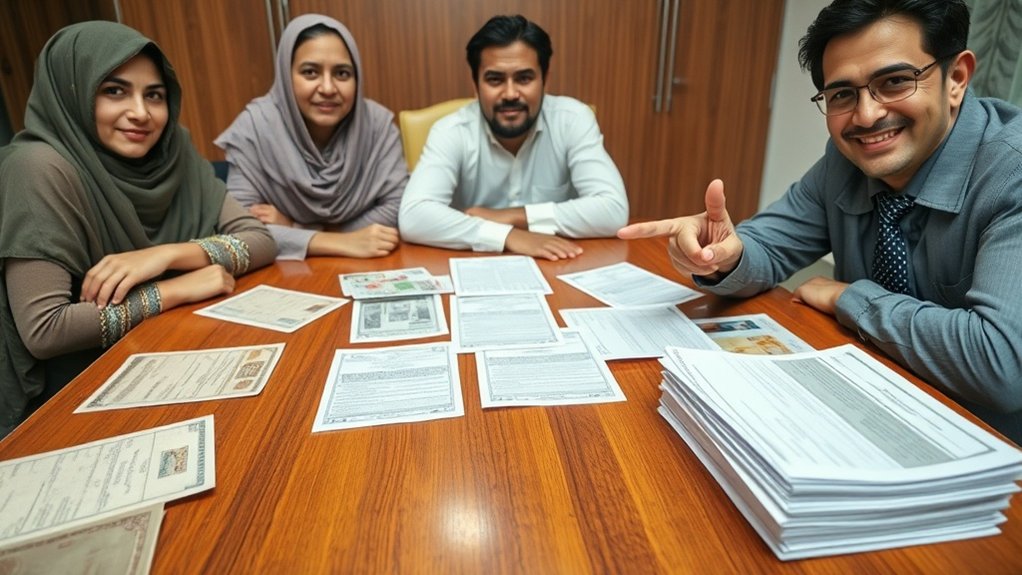
How can you prevent name-related troubles from resurfacing after a successful change? Staying vigilant and proactive will save you from frustrating setbacks. After you’ve finalized your name change, it’s essential to update every relevant document and inform the proper institutions without delay. Overlooking one small detail can snowball into major complications later.
Here’s a streamlined approach to stay ahead:
- Update Official Records: Immediately revise your name with government offices, banks, schools, and workplaces.
- Check Transliteration Consistency: Ensure your new name’s spelling matches across all languages and document formats, especially if multiple scripts are involved.
- Notify Relevant Organizations: Inform any organization that keeps records on you, such as utility providers, health insurers, and landlords.
- Monitor Your Digital Presence: Check and update your name on online platforms, email accounts, and social media to maintain a consistent record everywhere.
With these steps, you’ll secure a smooth transition and avoid future name-related obstacles.
Frequently Asked Questions
How Long Does the Name Correction Process Usually Take in Brazil?
The name correction process in Brazil usually takes between one and three months, depending on your specific case and the court’s workload. You’ll need to file a petition at the civil registry or through a lawyer, and attend a hearing if the judge requests it. If everything’s in order, you’ll get a new birth certificate. Make sure you provide all necessary documents, so you don’t face any unnecessary delays.
Are Children’s Names Affected in Family-Based Corrections?
Yes, children’s names can be affected in family-based corrections. If you’re making a legal change to your surname or rectifying transliteration issues, your children’s documents and records may also need updating to reflect the change. You’ll have to submit their birth certificates and required paperwork, so their names remain consistent with yours in legal documents. It’s important to include your children in the application to avoid future administrative complications.
Can I Change My Name for Personal Reasons, Not Due to Errors?
Yes, you can change your name for personal reasons, not just because of errors. You’ll need to follow your local legal process, which often involves submitting a formal request to the appropriate civil registry, explaining your reasons, and sometimes appearing before a judge. It’s important to provide any required documents and pay applicable fees. Once approved, you can update your records, IDs, and other official documents to reflect your new name.
Will Corrected Documents Be Accepted Internationally?
Yes, you’ll generally have your corrected documents accepted internationally, as long as they’re officially issued and legalized by your country’s authorities. Make sure you bring all relevant documentation, such as legal name change certificates or apostilled documents, to prove authenticity when needed. Some countries may ask for certified translations or additional verification, so check the specific requirements of your destination before you travel or apply for anything using your corrected documents.
Is Legal Aid Available for Low-Income Afghan Families?
Yes, you can access legal aid if you’re a low-income Afghan family, though availability depends on your location and specific circumstances. Many countries and some NGOs offer legal support services for refugees and immigrants. Start by contacting local refugee organizations or government agencies—they’ll guide you on available assistance, eligibility, and necessary documentation. Don’t hesitate to ask about pro bono legal aid, as many lawyers volunteer time to help families like yours through these challenges.
Conclusion
When you face name change, transliteration, or alias issues in Brazil, you don’t have to navigate the challenges alone. Vieira Braga Advogados makes the process straightforward, ensuring your documents match your true identity and personal history. With their knowledge of Afghan naming customs and Brazilian law, you’ll move forward with confidence, leaving confusion and delays behind. Trust their team to provide support and clarity, so you can focus on your new life with peace of mind.

